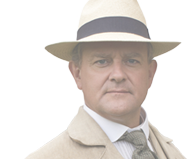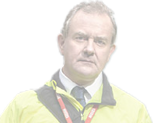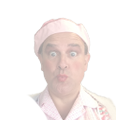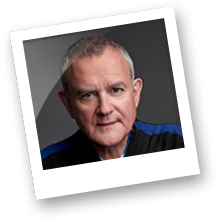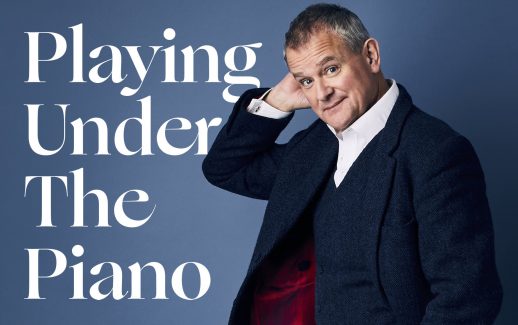Interview by Phil Hewitt for Sussex World
Hugh Bonneville has enjoyed phenomenal success around the world with Downton Abbey and with Paddington. And he recalls them both in his new book Playing Under the Piano: From Downton to Darkest Peru (published October 13).
But one thing it isn’t is an autobiography. It’s most definitely a memoir, he stresses – a collection of stories – “not necessarily entirely accurate!” – from across his career. What’s it like working with Judi Dench, Maggie Smith and Julia Roberts? What’s it like being Robert de Niro’s right leg? Hugh will tell the tales in a book which also, movingly, remembers his dad and his battle with dementia. He also remembers his mother whose life in the secret service only emerged after her death. Hugh, who lives near Midhurst, will be talking about the book on October 20 at 7.30pm at Graylingwell Chapel, Chichester (sold out), on October 24 at 7.30pm at Yvonne Arnaud Theatre, Guildford and October 30 at 7.30pm at Rother College Theatre, Midhurst as part of the Petworth Festival Literary Week.
“A literary agent approached me eight years ago and said I should write a comic novel but I said no, I just didn’t feel I had the equipment for that. So he said what about an autobiography? And again I said no because you think of autobiographies being pompous and ridiculous. So he said at least write some stories from your 30 or so years in the business and that’s what this became, a mixture of stories not necessary all entirely accurate but viewed through the mist.
“I started writing it about six years ago and I wrote a few bits, but I’m lucky enough to be pretty busy in my day job so every few months the agent would ask me ‘Is it coming?’ and I would say ‘It’s coming, it’s coming’ but I wasn’t really making any progress. And actually it was my son Felix who shamed me into it in the end. When Felix went off travelling for a year he peeled off and went to live in a rented hut on a hillside for a week and just wrote. He sent me a picture saying ‘This is my word count for today. How many words have you written, dad?’ He started his novel and I realised I was being embarrassed bymy own son! So I thought I’d better get on with it and I sat down in October and I delivered it in January. But really the thing about not writing an autobiography is that you don’t necessarily have something structured by time or indeed something that actually has a structure really. But when you write from the heart the subconscious just takes over. And I found myself writing about my dad who had dementia. He died just before the lockdown.
“I suppose I was just generally writing about the influences on me and how central my parents were, particularly their interest in the arts even though it was in a way a light-weight interest. They were not arts professionals. It was just part of their day-to-day culture like going to the allotment or going sailing, just something that was in their world and was part of my growing up. But as I get older, I’m just increasingly aware of how fortunate I was that I had that gentle awareness of the arts in my background especially today when the arts provision is being cut for millions. I’m involved with the National Youth Theatre and I went with one of the guys to see some young actors that were preparing to audition for the National Youth Theatre at a school in Kent. The teacher said ‘I will take you to where they are rehearsing.’ It was a brand-new school and we were expecting new facilities, but not a bit of it. They were in the library and the stacks of books had been pushed to one side so that they could rehearse. It was the only place where they could work. They didn’t have a studio. I said ‘What about music?’ and the teacher said ‘What music?’ There was no provision for music in the school and it just breaks my heart. The literati wave their finger about the privately educated getting all the breaks in the arts but it is as simple as that really: there just are not the opportunities (in state schools) and it’s one of my big beefs I bang on about in the book.”
Inevitably people tell you to “stay in your lane” in life, but ever since President Zelensky came to such prominence, Hugh can point to an instance of an actor who absolutely didn’t stay in his lane… though Hugh is quick to point out that he has no political ambitions himself: “But at one point I did ask myself why am I writing this and again I suppose it’s thinking about my father, to have something to pass down to my son. Towards the end of his life my father’s brain was softening and I gave him one of those books where you write what you were doing at a certain age. He did a few bits really but it didn’t engage and so I suppose what I’m doing now is writing about my memories before perhaps my brain goes.
“I have written about the key moments in my life, the first job, getting my equity card, the first break, all the elements of luck along the way.” For instance while working in rep in Colchester, a besuited Hugh was attending an interview and popped into the National in London for a coffee – and it was because he was wearing the suit that he was noticed by a passing director who just happened to be thinking about a particular role in that moment. For Hugh it meant a return to the National – just by chance: “I always think that opportunity is a mixture of luck and talent. If your passion is to be involved in the theatre, you have more chance of something happening if you’re working in a box office than if you are working in a factory in Kidderminster. You have to put yourself in that orbit and then with luck something might happen and that has always been my instinct.”
Inevitably Downton looms large in the book: “And that’s what a lot of readers will be interested in but I’ve already told most of the stories. The fact is that as a group of people we have always been quite protective of each other and respectful of each other’s personal experience of being in the show. It is not going to be salacious gossip. The fact that we are group of people that have always got on very well, I hope, is what comes across.”



